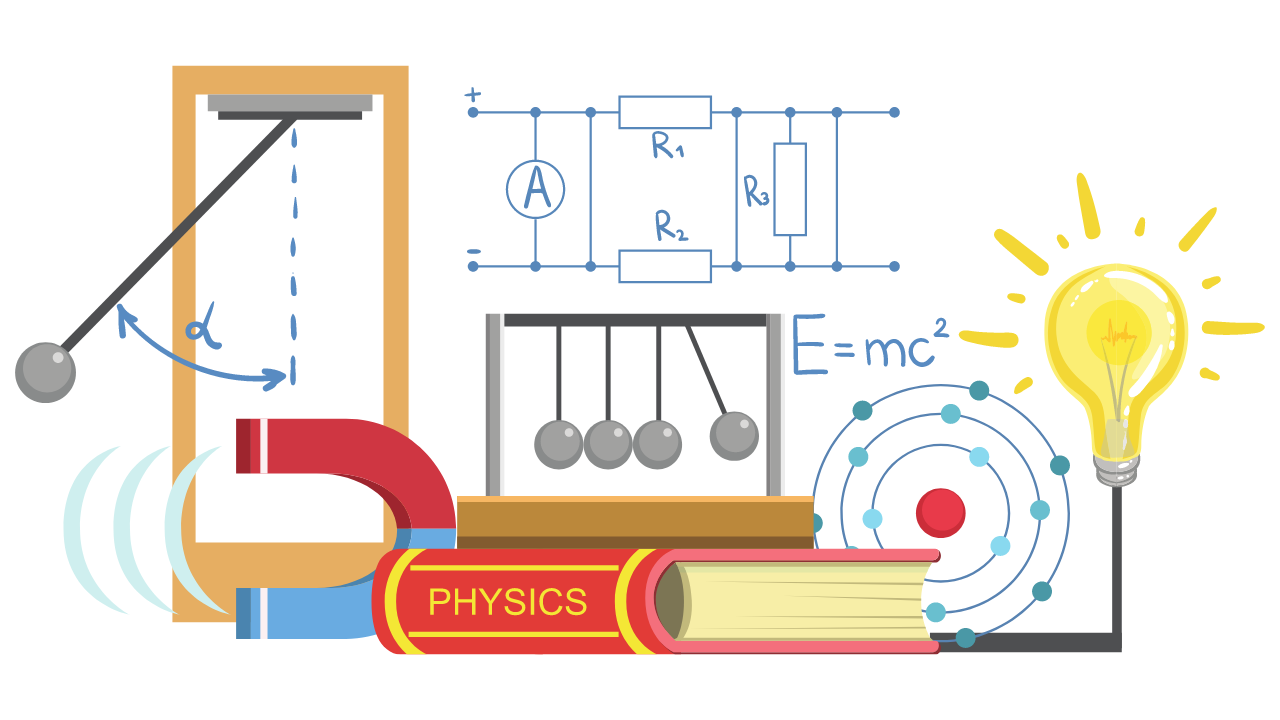Quick reality check—less than half of the total applicants get into U.S. medical schools each year. But don’t freak out just yet!
You’ve got control over a huge piece of this puzzle, and that’s your undergrad course load. Picking the right premed courses is huge—it’s what sets you up to crush the MCAT and make med school admissions committees raise an eyebrow (in a good way).
Let’s face it—there’s a mountain of advice out there. You’ve probably heard a hundred different takes on what classes to take. Some people say this, others say that.
So, what’s the truth? Well, no more guesswork. We’re going to break down exactly what you need to focus on—starting with the absolute must-takes, then moving on to the “if you really want to stand out” courses, and rounding things off with some nice-to-haves if you can squeeze them in.
Must-Take Courses Every Premed Student Needs
If you do nothing else, do these. These classes are non-negotiable. They’re like the foundation for everything you’ll do in med school and beyond.
And yep, they show up all over the MCAT too. So skipping them? Nope, not an option.

Biology 1 & 2: The Foundation of Medical Science
Let’s start with an obvious one—Bio 1 and 2. You’re going to be swimming in biology for the rest of your life, so might as well get comfy with it now.
Here’s why it matters:
These classes lay down the groundwork for all things medical. You’ll be looking at the building blocks of life, how cells function, and what happens when things go wrong (spoiler: diseases). Everything you learn here will pop up again in med school and beyond.
General Chemistry 1 & 2: Unlocking Chemical Reactions
Next up—General Chemistry. Is it the most fun course ever? Probably not. But is it important?
Absolutely. Think of this as the “glue” that binds together everything else you’ll learn in medicine.
Why you need it:
Think of Gen Chem as the foundation for everything you’ll dive into later, like Orgo and Biochem. Plus, you’ll use these concepts over and over in medical research and clinical settings. So, yeah, mastering it now gives you the power to tackle more advanced topics with confidence later.
Organic Chemistry 1 & 2: Understanding the Building Blocks of Life
Oh, Organic Chemistry. The course that’s infamous for causing sleepless nights for premeds. But believe it or not, it’s not just about memorizing reactions (though, yeah, there’s plenty of that).
It’s about understanding the basic chemistry that governs living systems. And, guess what? You’ll need it for med school and beyond.
Here’s the deal:
Yes, it’s tough. But getting through Organic Chemistry will give you the tools to crush Biochem and other advanced topics later.

Biochemistry 1 & 2: The Chemistry of Life
Now we’re getting to the real fun stuff. Biochemistry ties together everything you learned in Biology, Chemistry, and Organic Chemistry, and it brings them into the real world of medical science. This is where you truly start thinking like a future doctor, understanding how molecules interact and influence living systems.
Why it’s a must:
You’ll use this knowledge not just for the MCAT, but throughout med school and beyond. Trust me—understanding the biochemical pathways of diseases and treatments is what will make you an exceptional physician.

Physics 1 & 2: Mastering the Mechanics of Medicine
You might be scratching your head and wondering what on earth physics has to do with being a doctor. But, surprise—physics has everything to do with medicine. From understanding how the body moves to how medical imaging works, physics is crucial.
Here’s why:
Mastering Physics 1 & 2 gives you a solid understanding of how physical principles apply to the human body and medical technology. Plus, when you hit those radiology rotations, you’ll be glad you paid attention.
English Composition 1 & 2: Because Writing Actually Matters
You might think writing is the least of your worries, but guess what? It matters—a lot. Whether it’s writing up research papers, crafting a personal statement, or (eventually) documenting patient notes, clear communication is key. And the sooner you sharpen your writing skills, the better off you’ll be.
Why it’s important:
English Comp is about way more than essays—it’s about learning to communicate clearly, which is something you’ll be doing every day as a doctor. So, if you’ve been neglecting those grammar skills, now’s the time to polish them up.
Highly Recommended Courses for a Competitive Edge
Okay, so you’ve got the essentials covered. But if you want to stand out from the crowd and take your premed prep to the next level, consider adding these highly recommended courses to your schedule. They aren’t always required, but boy, do they make a difference.
Statistics: The Language of Medical Research
Ever wonder how doctors know which treatments work best? That’s where statistics comes in. Understanding how to interpret data is critical in medicine, whether you’re reading up on clinical trials or conducting your own research.
Why it’s a game-changer:
Take a stats class, and you’ll not only boost your MCAT score, but you’ll also be ready to crush med school research papers.
Genetics: Understanding the Blueprint of Life
Genetics is everywhere in medicine these days. From understanding genetic diseases to cutting-edge research like gene therapy, knowing the ins and outs of DNA is huge. It’s also a mid-yield topic on the MCAT, making it an important one to study.
Here’s why:
So, if you’ve got room in your schedule, take genetics. It’s a game-changer.
Molecular Biology: Digging Deeper Into Life
If you want to get real serious about understanding life at the molecular level, Molecular Biology is where it’s at. This course takes what you’ve learned in bio and chem and drills down deeper into the molecular processes that keep us alive. It’s high-yield for the MCAT too!
Here’s the deal:
Molecular Bio will make you a molecular science pro, which—let’s face it—makes you sound like a boss when it comes time for med school interviews.
Cell Biology: The Basics of Life
In med school, you’ll spend a lot of time learning how cells work. That’s why a solid understanding of Cell Biology is so important. It’s a big topic on the MCAT, and it gives you the foundation you’ll need to understand how diseases and treatments affect the body at the cellular level.
Why it matters:
It’s simple—know your cells, know your medicine.
Microbiology: The World of Invisible Invaders
If you’re interested in infectious diseases (and let’s be honest, they’re kind of a big deal these days), Microbiology is a must.
You’ll be studying bacteria, viruses, and all those other tiny organisms that wreak havoc on the body. While it’s not a huge focus on the MCAT, it’s super relevant to the world of medicine.
Why it’s useful:
Microbiology will give you a leg up in understanding how to tackle infectious diseases head-on.
Optional Courses to Consider: If You’ve Got Room in Your Schedule
Alright, so you’ve knocked out the essentials and highly recommended courses. If you’ve still got room, here are a few optional courses that could give you an extra edge. They aren’t required, but they might just make your med school life a little easier.
Psychology and Sociology: Understanding Human Behavior
These courses are super relevant for medicine because you’re going to be working with people. Understanding how the human mind works and how society influences behavior will help you become a more empathetic and effective doctor. Plus, they’re high-yield on the MCAT.
Why they’re worth it:
Having a good grasp of Psych and Soc can help you connect with patients on a deeper level, and that’s something med schools love to see.
Ethics: Because Medicine Isn’t Just Science
Ethics is a huge part of medicine. You’ll be faced with tough decisions throughout your career, and knowing how to handle them with grace and professionalism is key. It’s also super useful for prepping for CASPer and MMIs during your med school application process.
Why it’s valuable:
Taking an ethics course will help you think critically about the tough decisions you’ll face in the future.
Medical Terminology: Speak Like a Doctor
Medical Terminology might not be on the MCAT, but it’s incredibly useful once you get to med school. You’ll be swimming in new terms, and having a basic understanding beforehand will make your life a lot easier.
Knowing your medical terms means you won’t be playing catch-up when you start hearing fancy words like “sphygmomanometer” thrown around.

Start Practicing CARS Early!
CARS (Critical Analysis and Reasoning Skills) is a beast of its own. Unlike other sections of the MCAT, it’s not about content knowledge—it’s about your ability to read, analyze, and understand complex passages. And since you’re not learning this stuff in your regular premed classes, you’ll need to practice on your own.
Why it’s important:
By the time MCAT season rolls around, you’ll be a CARS master.
Conclusion: Make a Plan for Success
There you have it—the best premed undergrad courses to maximize your med school chances. Whether it’s the must-take science courses, the highly recommended ones that’ll give you an edge, or the optional courses that can help you shine, building a solid course schedule is key to your success. You got this, future doc!
